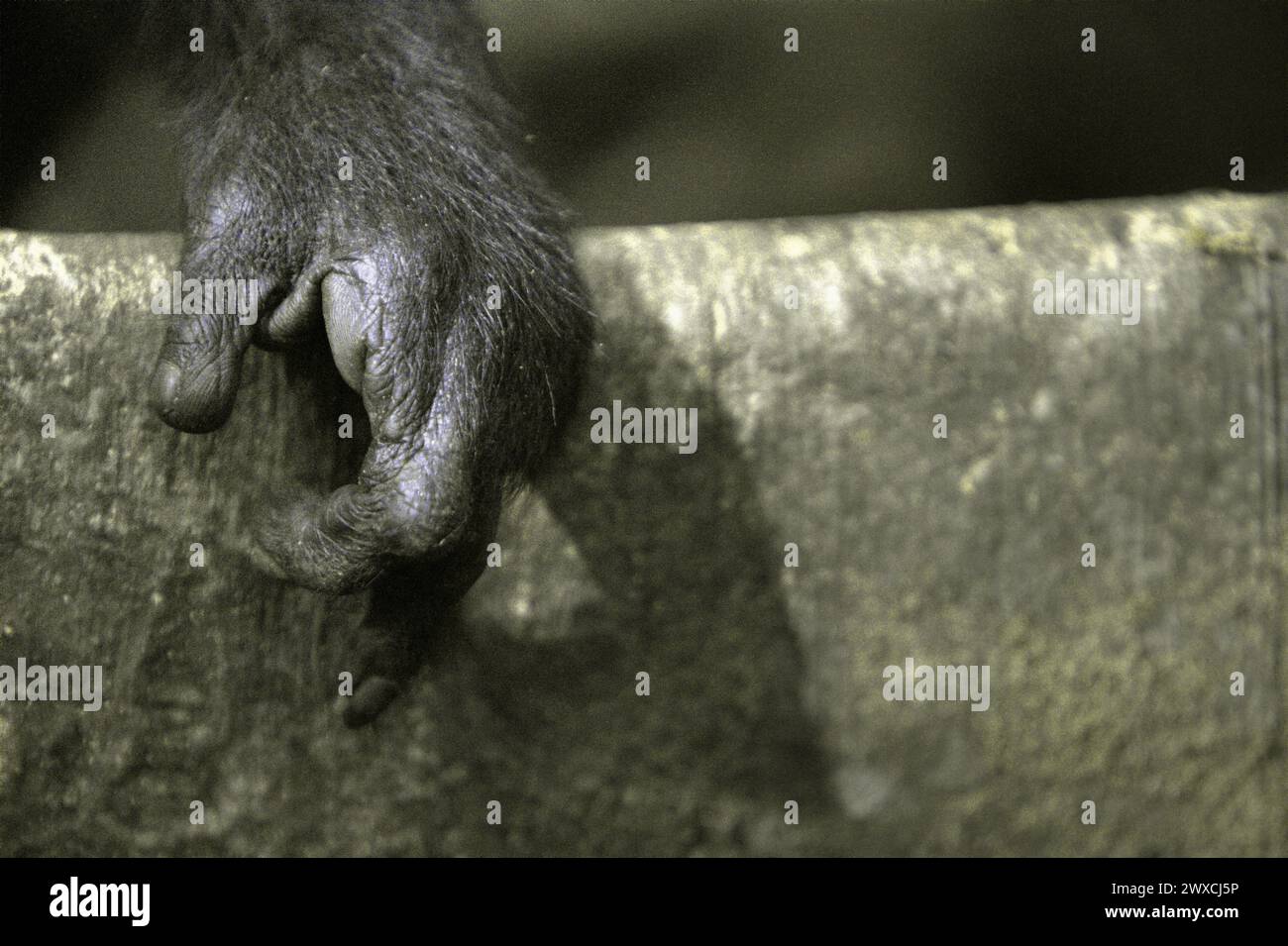Detail of the left hand of a crested macaque (Macaca nigra), showing that it has lost its forefinger by a poacher's snare; photographed in Tangkoko forest, North Sulawesi, Indonesia. Climate change is altering environmental niches, causing species to shift their habitat range as they track their ecological niche, that could be a disadvantage in terms of effective management for biodiversity, according to Nature Climate Change. A report by a team of scientists led by Marine Joly, based on research conducted since 2012 to 2020, has revealed that the temperature is increasing by up to 0.2 degree

Image details
Contributor:
Pacific Imagica / Alamy Stock PhotoImage ID:
2WXCJ5PFile size:
51.6 MB (3.4 MB Compressed download)Releases:
Model - no | Property - noDo I need a release?Dimensions:
5202 x 3464 px | 44 x 29.3 cm | 17.3 x 11.5 inches | 300dpiDate taken:
19 January 2012Location:
Bitung, North Sulawesi, IndonesiaMore information:
This image could have imperfections as it’s either historical or reportage.
Detail of the left hand of a crested macaque (Macaca nigra), showing that it has lost its forefinger by a poacher's snare; photographed in Tangkoko forest, North Sulawesi, Indonesia. Climate change is altering environmental niches, causing species to shift their habitat range as they track their ecological niche, that could be a disadvantage in terms of effective management for biodiversity, according to Nature Climate Change. A report by a team of scientists led by Marine Joly, based on research conducted since 2012 to 2020, has revealed that the temperature is increasing by up to 0.2 degree Celsius per year in Tangkoko forest, and the overall fruit abundance is also decreased. "Rising temperatures caused by climate change can disrupt the delicate balance of ecosystems. Many species have specific temperature requirements for survival and reproduction. Even slight temperature shifts can impact their ability to find food, mate, and migrate, leading to population declines. Thus, in turn, affects the intricate web of interactions within ecosystems, " the editors of Scale Climate Action added on their website. Meanwhile, the International Union for Conservation of Nature (IUCN) concluded that rising temperatures have led to—among others—ecological, behavioral, and physiological changes in wildlife species and biodiversity. "In addition to increased rates of disease and degraded habitats, climate change is also causing changes in species themselves, which threaten their survival, " they wrote on IUCN.org.